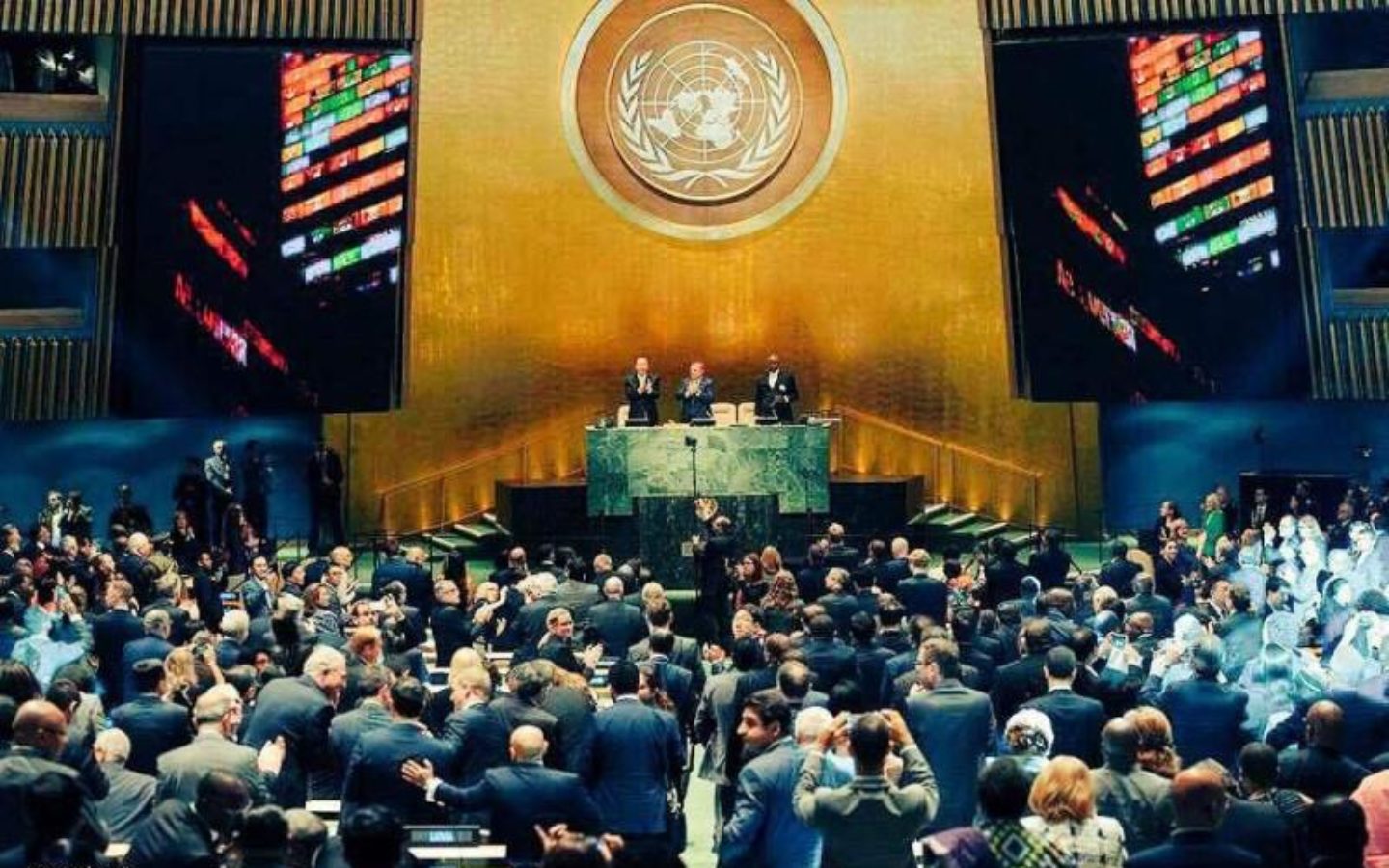The Paris Agreement, COP 21 & Gender Mainstreaming
The Paris Agreement is a legally binding international Treaty on climate change that was adopted by 196 Parties at COP21 in Paris on 12th December 2015 that entered into force on 4th November 2016. I was involved in putting together a side-event at COP21 and recall what a landmark and “dot in history” this for in the multilateral climate change process that required both an economic and social transformation. A historic moment for the world where there was a global commitment to halt temperatures rising above 2 degrees Celsius with a firm commitment at preferably 1.5 degrees Celsius.
The Preamble of the Paris Agreement acknowledges that “climate change is a common concern of humankind.” When addressing the environment, governments should further “gender equality, empowerment of women and intergenerational equity” in line with human rights and the UN Declaration. Article 7 of the Agreement stipulates that adaptation should have a “country-driven, gender-responsive, participatory and fully transparent approach taking into consideration vulnerable groups, communities and ecosystems.” We see the a clear gender lens across the Treaty that starts makes an appearance in the Preamble that stipulates that:
“…[C]limate change is a common concern of humankind,
Parties should, when taking action to address climate change, respect, promote and
consider their respective obligations on human rights, the right to health, the rights
of indigenous peoples, local communities, migrants, children, persons with
disabilities and people in vulnerable situations and the right to development, as
well as gender equality, empowerment of women and intergenerational equity”
Article 7 outlines that Member States need a “gender responsive lens”
Article 7 (para 5):
“Parties acknowledge that adaptation action should follow a country-driven,
gender-responsive, participatory and fully transparent approach, taking into
consideration vulnerable groups, communities and ecosystems, and should be
based on and guided by the best available science and, as appropriate, traditional
knowledge, knowledge of indigenous peoples and local knowledge systems, with a
view to integrating adaptation into relevant socioeconomic and environmental
policies and actions, where appropriate.”
Article 11 weaves gender -responsive language within the Treaty once again.
Article 11 (para 2)
“Capacity-building should be country-driven, based on and responsive to
national needs, and foster country ownership of Parties, in particular, for
developing country Parties, including at the national, subnational and local levels.
Capacity-building should be guided by lessons learned, including those from
capacity-building activities under the Convention, and should be an effective,
iterative process that is participatory, cross-cutting and gender-responsive.”
The United Nations Framework Convention on Climate Change (UNFCCC)
The UNFCCC entered into force on 21 March 1994 with 197 countries having ratified the Convention. The UNFCCC was built upon one of the most “successful” multilateral environmental treaties the Montreal Protocol in 1987 where it bound Member States to act in the interests of “human safety”.
Gender & UNFCCC
UNFCCC between 2020-2022 called on both the public and private sector to further gender investment in line with climate mitigation and issued in excess of 50 decisions
Gender Mainstreaming
There is a need for transformative leadership with a gender investment lens to address some of the root causes that women and young girls face which have seen further highlighted due to the pandemic Covid-19. Female leaders are furthering the global climate movement, pushing for social justice protections, addressing the COVID-19 crisis, and dismantling systemic racial discrimination.
UN Women on Gender Mainstreaming:
“The gender equality and women’s empowerment mandate is universally agreed on by Member States and encompasses all areas of peace, development and human rights. The mandates on gender equality derive from the United Nations Charter, which unequivocally reaffirmed the equal rights of men and women.”
Key Tools & Resources
- Gender mainstreaming: A global strategy for achieving gender equality and the empowerment of women and girls
- A repository of gender mainstreaming policies
- A UN system repository of resources and tools for capacity development on gender mainstreaming
- A list of official documentation on UN system-wide policy and strategy, with links to resolutions and reports on gender mainstreaming by ECOSOC and the General Assembly, as well as the policy of the United Nations Chief Executives Board for Coordination.
Source: UNwomen.org
About Nisaa Jetha.
Nisaa Jetha is a leading global strategist and impact professional. She launched an energy governance group in the United Kingdom’s Parliament (House of Lords) hosted by the Under -Secretary of State for International Development. Nisaa was selected alongside 150 world leaders to attend the inauguration of the United Nations Sustainable Development Goals (SDGs), curated a focus event on climate change at COP21 (that resulted in the Paris Agreement), and selected by the United Nations Women Group (UN Women) to hold one of 92Y‘s Genius Panels in conjunction with MSNBC on Google Campus and represent the UK at the United Nations. She sat on one of the only inter-agency working groups for youth and gender globally with the United Nations is a trained solicitor of England & Wales. Nisaa was nominated by the United State of Women Summit hosted by the White House and is part of 100women@Davos. She holds degrees in International Development Studies from McGill University, a law degree from The University of London with post-graduate qualifications from The University of Nottingham and The Harvard Kennedy School of Government (in collaboration with The Centre for Sustainable Finance and Private Wealth (The University of Zurich) and World Economic Forum). Nisaa has asset management experience across public and emerging markets, is a current Director on United Nations’ Inter-Governmental Organization (Be Earth) and Head of Sustainable Finance (ESG) & Impact Investing at Academy4theFuture. She a Co-Founder of Athari-Rise and Global Expert at Consilience Ventures.



